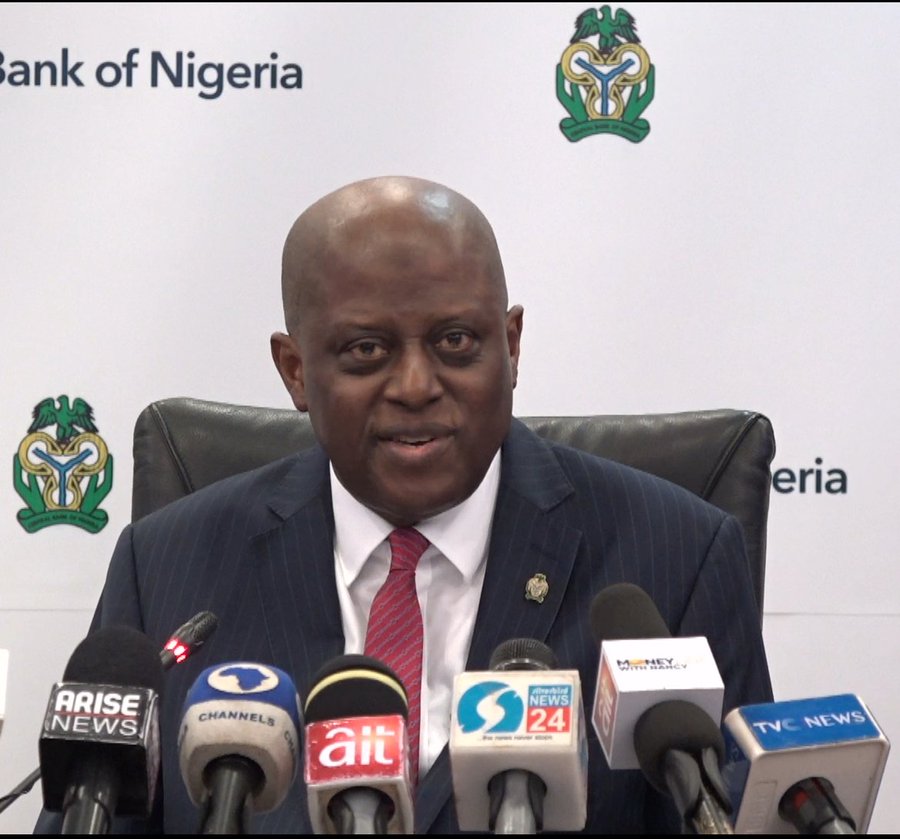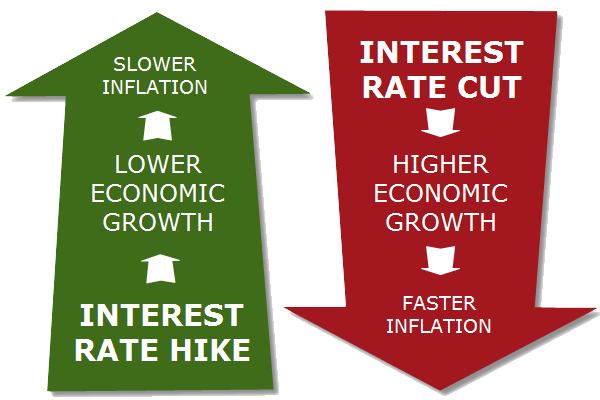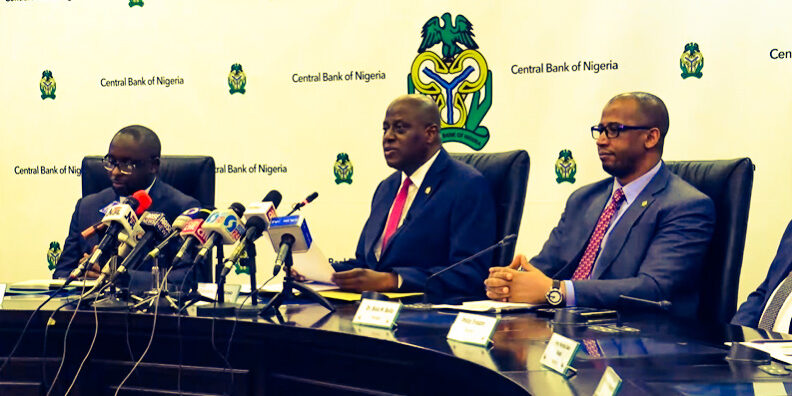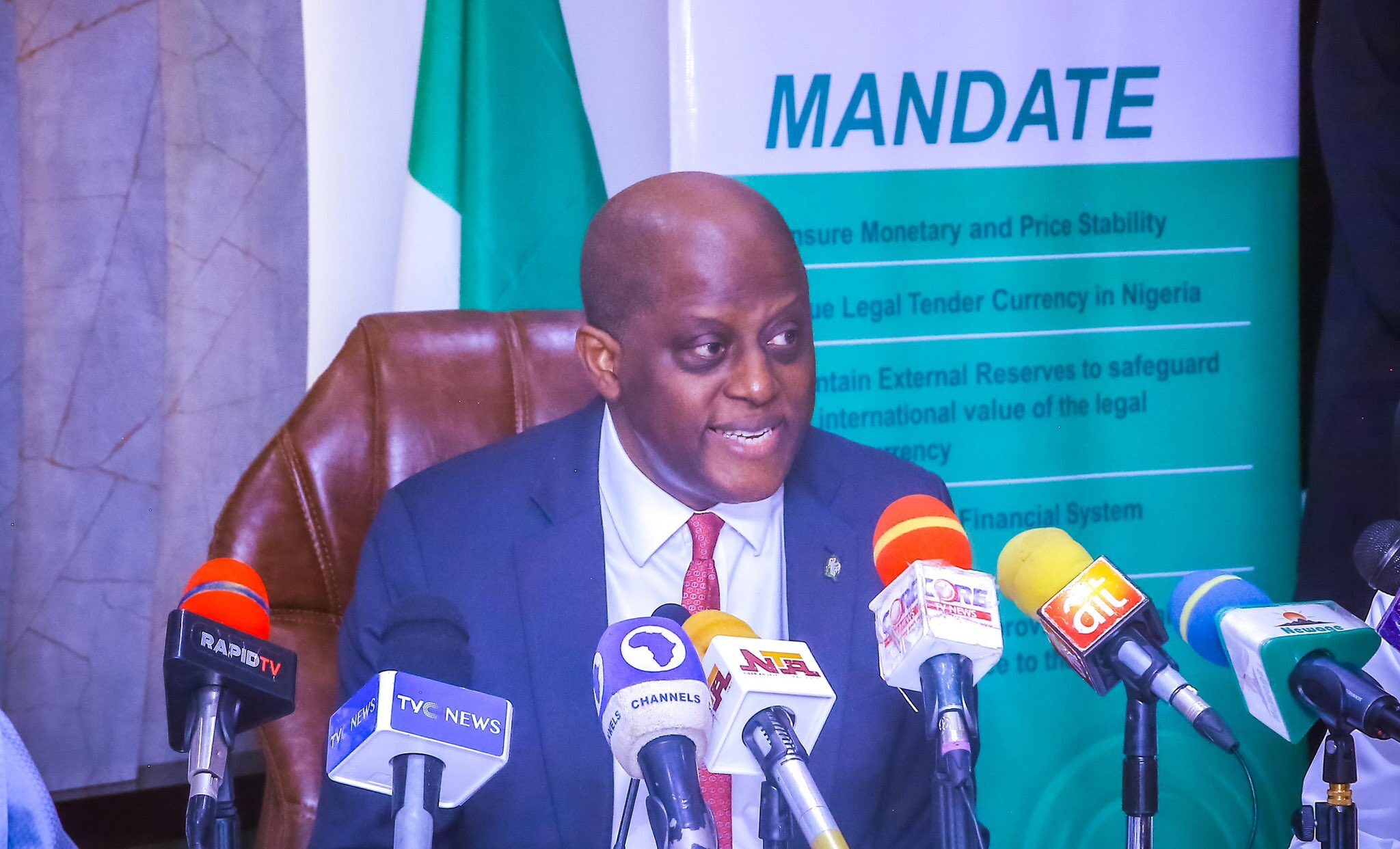Economy
Senate Holds Talks on Banks’ High Interest Rates


By Dipo Olowookere
The high interest rate being charged by commercial banks in the country has caught the attention of the Senate and this would be discussed during plenary this week.
Senate President, Mr Bukola Saraki, told reporters on Saturday in Ilorin, Kwara State that he and his colleagues will look into the matter with a view to prevailing on the lenders to cut the rate.
Mr Saraki noted that the high interest rates being charged by commercial banks on loans to customers could have adverse effect on the country’s economy, particularly for entrepreneurs who need borrowed funds to stay afloat and contribute to the Gross Domestic Product (GDP).
The Senate President said during the talks, the Senate would take a decision on the interest rates being charged by commercial banks as he said the prevailing rates were too high and discouraging to genuine industrialists and entrepreneurs who need to accommodate the cost of money alongside other costs to fix prices of goods and services.
“If we genuinely want to stimulate local manufacturing and development of the small and medium enterprises so as to generate employment and help our national economy to recover from recession, then people must be able to borrow money at reasonable interest rates. It is difficult for manufacturers to survive while borrowing at about 28 percent,” he said.
Speaking on the journey thus far, after being at the helm of the Senate and the National Assembly as a whole for the past two years, the Senate President said: “I am comfortable with the support that I have received from my colleagues. One thing that makes the 8th Senate different is that we take initiative.
“For example, a bill like the PIGB would have been easier to pass as an executive bill—however, based on how united we are and focused on the greater good, the passage of the PIGB goes to show Nigerians the competencies of the Senators of the 8th National Assembly.”
Mr Saraki said the 8th Senate has scored many firsts since its inception and that it has fulfilled its mandate through the passage of several critical economic reform bills, opening of the National Assembly’s budget, and its investigations that have helped in the fight against corruption.
“We are a focused Senate. We are also a people-oriented Senate. We are a Senate of many firsts, if you look at the passage of the Petroleum Industry Governance Bill, the opening of the National Assembly Budget, the passage of Bills like the Ports and Harbors Reform Bill and the Credit Bureau Scheme, you will see that we take governance very seriously.
“Over time, through our work like the Treasury Single Account (TSA) investigation; the NEITI Report investigation; and the North East Humanitarian Response investigation, we have shown that this is a Senate that does not sweep things under the carpet. We are working to pass Bills, enshrine transparency, and do things that matter to everyday Nigerians”, the Senate President said, “This is because we know what families across the nation are going through and we are working to try to create more opportunities for them.”
Mr Saraki also said, “Over the last two years, our focus has been on the economy, the economy, and the economy. You will soon see how the ‘Made in Nigeria’ amendment to the Public Procurement Act will open more opportunities for Nigerians.
“Additionally, starting with the implementation of the 2017 budget, the Senate will be defending Nigerian businesses by letting them know that if they find any government ministry, department or agency that is not patronizing ‘Made in Nigeria’ as a first option, they should let us know, and we will take appropriate action.”
When asked why the Senate decided to pass the governance aspect of the Petroleum Industry Bill first, the Senate President said: “One of my first meetings after becoming the Senate President was a meeting with consultants and stakeholders to find out why the Petroleum Industry Bill had always failed to pass in the past.
“When the reason became clear, we decided to take the first part of the Bill that has to do with governance, transparency and accountability in order to make the system more efficient for the country.
“By doing this, we have sent a message to international investors who have been previously unsure about what laws govern our petroleum industry that the country is truly ready for more investment in this sector.”
Speaking on the recent passage of the Nigerian Football Federation Bill by the 8th Senate, the Senate President described it as “A very important Bill that will transform the administration of football in the country. It is very personal to me because as a club owner, I am happy that this Bill will make the administration of football to be in-line with international best practices.”
Economy
Shettima Blames CBN’s FX Intervention for Naira Depreciation

By Adedapo Adesanya
Vice President Kashim Shettima has attributed the Naira’s recent depreciation to the intervention of the Central Bank of Nigeria (CBN) in the foreign exchange (FX) market, stating that the currency could have strengthened to around N1,000 per Dollar within weeks if the apex bank had allowed market forces to prevail.
The local currency has dropped over N8.37 on the Dollar in the last week, as it closed at N1,355.37/$1 on Tuesday at the Nigerian Autonomous Foreign Exchange Market (NAFEM), after it went on a spree late last month and into the early weeks of February.
However, speaking on Tuesday at the Progressive Governors’ Forum (PGF), Renewed Hope Ambassadors Strategic Summit in Abuja, the Nigerian VP said the intervention was to ensure stability.
“In fact, if not for the interventions by the Central Bank of Nigeria yesterday, the 1,000 Naira to a Dollar we are going to attain in weeks, not in months. But for the purpose of market stability, the CBN generously intervened yesterday.
“So, for some of my friends, especially one of our party leaders who takes delight in stockpiling dollars, it is a wake-up call,” the vice president said.
He was alluding to CBN buying US Dollars from the market to slow down the rapid rise of the Naira.
Latest information showed that last week, the apex bank bought about $189.80 million to reduce excess Dollar supply and control how fast the Naira was gaining value.
The move was aimed at preventing foreign portfolio investors from exiting Nigeria’s fixed-income market, as large-scale sell-offs could heighten demand for US Dollars, intensify capital flight, and exert further pressure on the exchange rate.
Amid this, speaking after the 304th meeting of the monetary policy committee (MPC) of the CBN on Tuesday, Governor of the central bank, Mr Yemi Cardoso, said Nigeria’s gross external reserves have risen to $50.45 billion, the highest level in 13 years.
This strengthens the country’s foreign exchange buffers, enhances the apex bank’s capacity to defend the Naira when needed, and boosts investor confidence in the stability of the Nigerian FX market.
Economy
Dangote Refinery Exports 20 million Litres Surplus of PMS

By Aduragbemi Omiyale
Up to 20 million litres in surplus of Premium Motor Spirit (PMS), otherwise known as petrol, is being exported daily by the Dangote Petroleum Refinery and Petrochemicals after supplying about 65 million litres to the domestic market.
Nigeria’s average daily petrol consumption stands at between 50 and 60 million litres, indicating that the refinery’s output exceeds current domestic requirements, marking a decisive break from decades of fuel import dependence and recurrent scarcity.
The president of Dangote Group, Mr Aliko Dangote, speaking in Lagos, while confirming a structured offtake agreement with selected marketers to ensure nationwide distribution and eliminate supply instability, said the structured model was designed to eliminate supply bottlenecks and curb speculative practices that have historically triggered disruptions.
“We have agreed an offtake framework to supply up to 65 million litres daily for the domestic market. Any surplus, estimated at between 15 and 20 million litres, will be exported,” he said.
Under a revised distribution framework endorsed by the Nigerian Midstream and Downstream Petroleum Regulatory Authority, the refinery will channel nationwide supply through major marketing companies, including MRS Oil Nigeria Plc, Nigerian National Petroleum Company Limited Retail (NNPC), 11 plc (Mobil Producing Nigeria), TotalEnergies Marketing Nigeria Plc, Rainoil Limited, Northwest Petroleum & Gas Company Limited, Ardova Plc, Bovas & Company Limited, AA Rano Nigeria Limited, AYM Shafa Limited, Conoil and Masters Energy.
With local refining now exceeding national demand, the country stands to conserve billions of dollars annually in foreign exchange previously spent on petrol imports. Analysts say this would ease pressure on the naira, strengthen external reserves, and improve trade balance stability.
Economy
NECA, CPPE Laud CBN’s 0.50% Interest Rate Cut

By Adedapo Adesanya
The Nigeria Employers’ Consultative Association (NECA) and the Centre for the Promotion of Private Enterprise (CPPE) have separately commended the Central Bank of Nigeria (CBN) for reducing the Monetary Policy Rate (MPR) from 27.0 per cent to 26.5 per cent at its 304th Monetary Policy Committee (MPC) meeting.
In reaction, NECA Director-General, Mr Adewale-Smatt Oyerinde, praised the decision in a statement, noting that the 50 basis-point cut is “a cautious but noteworthy signal” that authorities were responding to sustained pressures on businesses.
He said the marginal reduction might not immediately lower lending rates, but reflected “a gradual shift toward supporting growth without undermining price stability”.
According to him, the overall stance remained tight, with the Cash Reserve Ratio retained at 45 per cent and the liquidity ratio at 30 per cent.
He added that the asymmetric corridor around the MPR was also maintained, reinforcing a cautious monetary approach.
“With a substantial portion of deposits still sterilised, banks’ capacity to expand credit to the real sector may remain constrained in the near term,” he said.
Mr Oyerinde described the move as “a careful balancing act” aimed at moderating inflation without worsening pressures on businesses.
He noted that firms continued to grapple with high operating costs, exchange rate volatility and weakened consumer demand.
“Inflation, particularly in food, energy and transportation, remains a significant challenge to employers and households,” he said.
He stressed that the modest easing must be supported by coordinated fiscal and structural reforms to address supply-side constraints.
Such reforms, he said, should improve infrastructure and enhance productivity across key sectors of the economy.
Mr Oyerinde urged financial institutions to ensure the MPR reduction was gradually reflected in lending conditions for manufacturers and SMEs.
He affirmed that although the MPC had not fully relaxed its tightening stance, the rate cut signalled cautious optimism.
“Sustained improvements in inflation, exchange rate stability and investor confidence will determine scope for further easing that supports growth and employment,” he said.
On its part, the CPPE said the decision reflected improving macroeconomic fundamentals and a cautious shift from aggressive tightening.
The organisation noted that sustained disinflation, stronger external reserves, an improved trade balance and relative exchange-rate stability had created room for monetary easing.
It said the rate cut could boost investor confidence and support private-sector growth, but cautioned that weak monetary transmission might limit its impact on lending rates.
The CPPE identified high cash reserve requirements, elevated lending rates, government borrowing and structural banking costs as major constraints to effective transmission.
The group also stressed the need for fiscal consolidation, citing high public debt, persistent deficits and rising debt-service obligations as risks to macroeconomic stability.
According to the chief executive of CPPE, Mr Muda Yusuf, effective policy coordination and stronger transmission mechanisms were critical to unlocking investment and sustaining growth, lauding the CBN for what he described as a measured and data-driven policy adjustment.
The CPPE boss noted that the easing reflected strengthening macroeconomic performance, declining inflation, growing reserves, improved trade balance and enhanced foreign exchange stability.
Mr Yusuf added that for the benefits of monetary easing to be fully realised, authorities must strengthen transmission to ensure lower lending rates for the real sector and advance credible fiscal consolidation to safeguard stability.
He said that if supported by structural reforms and disciplined fiscal management, the current policy direction could unlock a stronger investment cycle and more durable economic growth.
-

 Feature/OPED6 years ago
Feature/OPED6 years agoDavos was Different this year
-
Travel/Tourism10 years ago
Lagos Seals Western Lodge Hotel In Ikorodu
-

 Showbiz3 years ago
Showbiz3 years agoEstranged Lover Releases Videos of Empress Njamah Bathing
-

 Banking8 years ago
Banking8 years agoSort Codes of GTBank Branches in Nigeria
-

 Economy3 years ago
Economy3 years agoSubsidy Removal: CNG at N130 Per Litre Cheaper Than Petrol—IPMAN
-

 Banking3 years ago
Banking3 years agoSort Codes of UBA Branches in Nigeria
-

 Banking3 years ago
Banking3 years agoFirst Bank Announces Planned Downtime
-

 Sports3 years ago
Sports3 years agoHighest Paid Nigerian Footballer – How Much Do Nigerian Footballers Earn
















